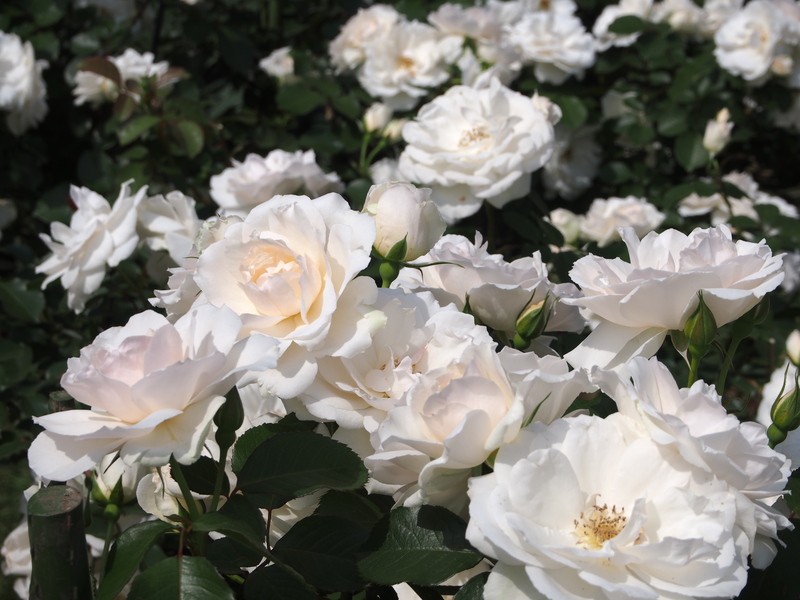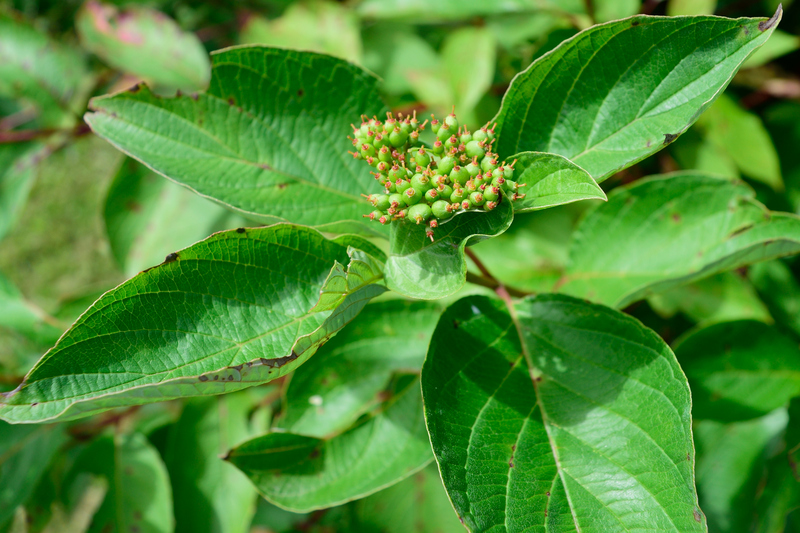Perfect Your Garden: 3 Essential Weed Tips
Posted on 06/09/2025
Perfect Your Garden: 3 Essential Weed Tips
Are unsightly weeds threatening to invade and overrun your beautiful garden? Every keen gardener knows that weeds are more than just a bit of greenery in the wrong place--they can outcompete your prized plants for light, water, and nutrients. That's why it's vital to master the most effective weed control methods to ensure your outdoor space remains lush, healthy, and spectacular. In this comprehensive guide, discover the top three essential weed tips and the science behind them to help you perfect your garden!
Table of Contents
- Understanding the Enemy: What Are Weeds?
- Essential Weed Tip #1: Preventative Measures
- Essential Weed Tip #2: Smart Removal Strategies
- Essential Weed Tip #3: Effective Mulching Techniques
- Bonus Tips for Weed-Free Success
- Conclusion: Create the Perfect Garden
Understanding the Enemy: What Are Weeds?
Before tackling weeds in your garden, it's crucial to understand exactly what you're up against. Weeds are simply plants that grow where they're not wanted. They're tenacious, adaptable, and often incredibly resilient. Some can germinate in days and spread seed prolifically, making them a gardener's toughest opponent.
The main reasons weeds thrive include:
- Fast growth rates: Many weeds can grow faster than cultivated plants, quickly dominating a garden bed.
- Efficient reproduction: Weeds often produce a staggering quantity of seeds or spread via rhizomes and runners.
- Adaptability: They can survive in a range of adverse conditions that may inhibit your desired flora.
Common garden weeds include dandelions, crabgrass, chickweed, and bindweed, each with its own strategies for invading your vegetable beds, lawns, and flower borders.
Essential Weed Tip #1: Preventative Measures
Stop Weeds Before They Start: Prevention Is Key to Garden Glory
A master gardener knows that prevention is easier than cure when it comes to controlling weeds. By perfecting your garden with strong barriers and clean practices, you can stop weeds from taking hold in the first place.
Weed-Free Gardening Starts with These Steps
- Use high-quality mulch: Mulches not only retain moisture and regulate soil temperature, but also block sunlight from reaching weed seeds, thus preventing their germination.
- Create physical barriers: Landscape fabric, cardboard, or several layers of newspaper can be placed beneath mulch to offer an extra layer of weed defense.
- Maintain dense plantings: Closely planted flowers and vegetables shade the soil, leaving less room for weed seeds to sprout.
- Keep garden tools clean: Contaminated tools can bring in weed seeds from other areas. Always clean them before use, especially if you've been working in a weedy patch.
- Monitor compost: Only compost weed-free material. If you mistakenly add seed-heads or perennial roots, you could inadvertently be spreading weeds when you use that compost.
Key takeaway: Investing time in effective weed prevention saves hours of back-breaking work later.
Essential Weed Tip #2: Smart Removal Strategies
Control Weeds with Precision and Persistence
Despite your best efforts, some weeds will inevitably find a way into your garden. Learning the most effective weed removal techniques will protect your plants and keep your landscape looking ideal. Here's how to perfect your garden's weed management:
Timing Matters
- Weed after rain: The best time to pull weeds is after a rainfall or watering session, when the soil is soft and root systems are easier to extract.
- Act fast: Don't let weeds mature. Remove them before they flower and go to seed. A single dandelion can spread thousands of seeds!
Proper Technique Is Everything
- Hand-weeding: Use a fork, trowel, or your hands for annual weeds or where you can lift the entire root system. Grab the weed at its base for the best results.
- Hoeing: For larger garden beds, sharp hoes make light work of weed seedlings. Glide the blade just under the soil surface to uproot young weeds.
- Use targeted natural herbicides: Vinegar solutions, boiling water, or salt can be applied directly to persistent weeds like driveway cracks--avoid using these where desirable plants might be injured.
- Solarization: In larger areas, cover the soil with clear plastic for several weeks in hot weather. The sun will superheat and sterilize the upper soil layer, destroying weed seeds.
Remember: Consistent effort is vital. Pulling a few weeds every day is much easier than wrestling with an overgrown patch after a month of neglect!
Essential Weed Tip #3: Effective Mulching Techniques
Smother Weeds and Nourish Your Soil for a Perfect Garden
If you're looking for a dual-purpose strategy to eliminate weeds while enhancing your garden's health, mulching is the answer. Mulch not only deprives weeds of light, but also enriches and protects the soil--essential for a thriving, weed-free garden.
Choosing the Right Mulch
- Organic mulches: Bark chips, straw, compost, and shredded leaves add nutrients back into the soil as they decompose, and are ideal for vegetable beds, flower borders, and under shrubs.
- Inorganic mulches: Stones, slate, and landscape fabric don't enrich the soil but are excellent for paths, driveways, and permanent landscaping where you want long-term weed suppression.
How to Apply Mulch Perfectly
- Clear the area of existing weeds to prevent them from pushing through the mulch layer.
- Lay a weed barrier (such as newspaper, cardboard, or landscape fabric) for extra protection--especially effective under organic mulch.
- Spread mulch evenly to a depth of 5-10 cm (2-4 inches) to smother weed seeds and retain soil moisture.
- Keep mulch away from plant stems to prevent rot--leave a small gap at the base of each plant.
- Replenish as needed, especially for organic mulches, which naturally break down over time.
Mulching not only perfects your garden by controlling weeds--it also conserves water, moderates soil temperature, and boosts fertility.
Bonus Tips for Weed-Free Success
- Regularly inspect your garden. Early intervention keeps small problems from spiraling out of control.
- Edge your lawn with deep borders to stop grass and weeds from creeping into flowerbeds.
- Plant groundcovers like creeping thyme, sedum, or vinca--they form living carpets that crowd out unwanted plants.
- Water your plants, not your weeds! By using drip irrigation or soaker hoses, you avoid watering bare soil where weed seeds may be lurking.
- Use pre-emergent natural weed barriers. Corn gluten meal, for instance, can be an effective organic solution to inhibit weed seed germination.
Conclusion: Create the Perfect Garden
Perfecting your garden isn't just about what you plant--it's also about what you don't allow to grow. With these essential weed management tips, you will have the knowledge and techniques to keep unwanted plants at bay and your favorite flowers, fruits, and vegetables flourishing. Remember:
- Prevent weeds with mulch, barriers, and dense plantings
- Remove weeds carefully and consistently, catching them early
- Apply mulch strategically for maximum weed control and soil vitality
Embrace these strategies to perfect your garden and enjoy a healthy, vibrant, and weed-free outdoor space!
Happy gardening from your new, weed-free paradise! For more expert gardening tips and comprehensive weed control advice, keep exploring and nurturing your knowledge.


Latest Posts
Botanical Elegance: Classic Hedge Trimming Shapes and Techniques
Embarking on a Garden Makeover Adventure
Building a Wind-Defensive Garden Retreat

